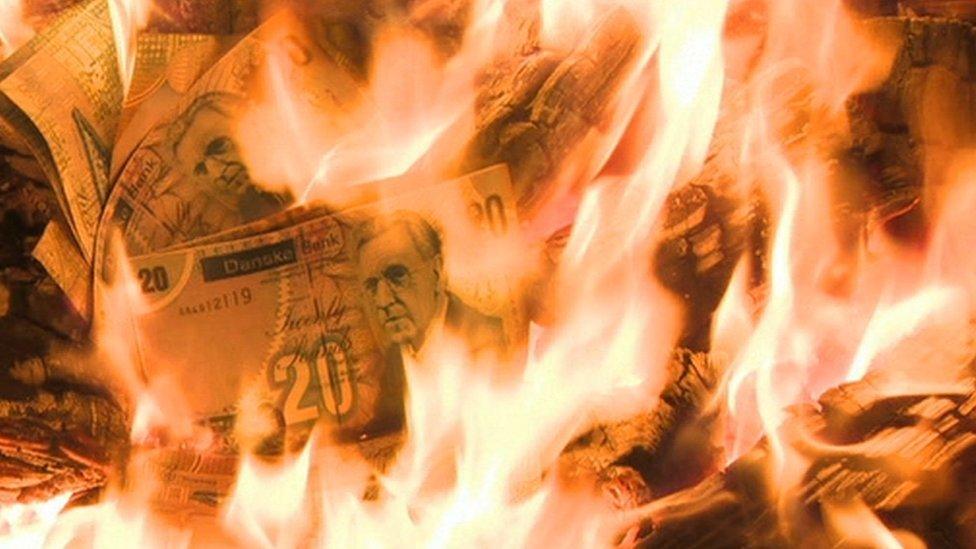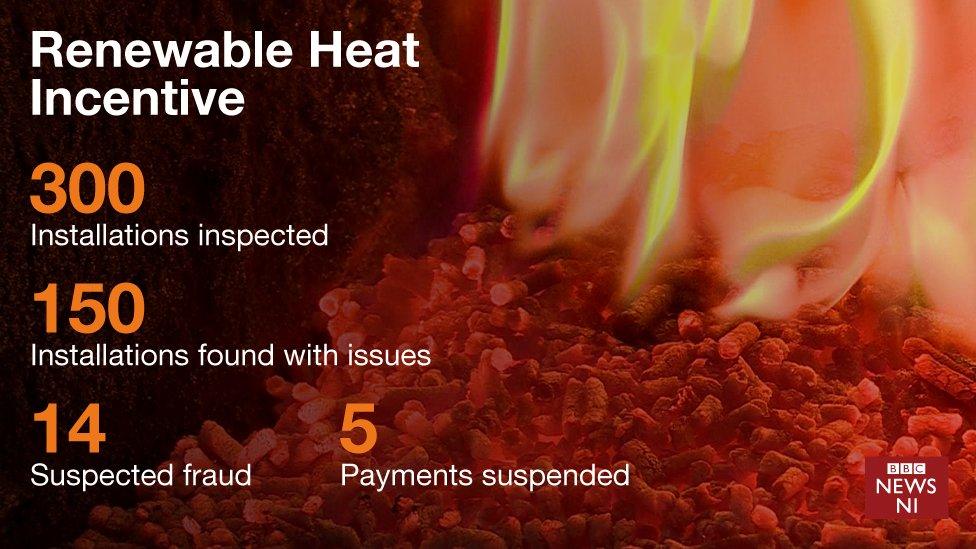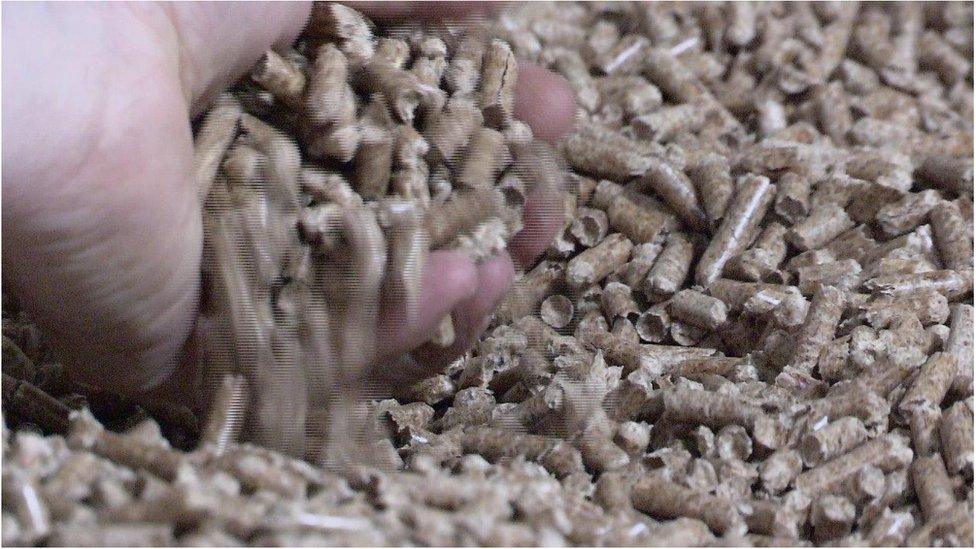RHI scandal: Ulster Farmers' Union 'warned of spike in applications'
- Published

The Ulster Farmers' Union wanted a 'phased closure' of the RHI scheme and said it was "unfair that farmers should pay the price for poor decision making"
Farmers warned Stormont of a potential spike in applications for the Renewable Heat Incentive (RHI) scheme months before it happened, it has emerged.
The botched RHI scheme is set to cost Northern Ireland taxpayers an extra £490m after it went vastly over budget.
The Ulster Farmers' Union (UFU) met Stormont officials in July 2015 and "warned of an imminent spike in demand" according to documents on its website, external.
The spike materialised three months later, adding millions to the bill.
Out of a total of almost 2,000 RHI applications, just under half were made in the space of seven weeks, and it was that flurry of applications which pushed the RHI budget beyond its limits, leaving taxpayers with an unexpected bill.

Details about the UFU meetings appeared on the union's website in February 2016, shortly after the then minister for enterprise, Jonathan Bell, announced his intention to close the RHI scheme to new applicants.
'Two opportunities'
The UFU was among campaigners who were opposed the "sudden" closure of the RHI scheme at that time, arguing that many farmers had already invested in expensive renewable energy boilers and were "expecting support" from the government.
The union wanted a "phased closure" so that those who had committed resources could complete their applications.
The UFU said at the time it was "not seeking a blank cheque" for its members but argued it was "unfair that farmers should pay the price for poor decision making".
"A limit should have been placed on the RHI budget," the UFU stated in February 2016.
The union also claimed that Mr Bell's Department of Enterprise, Trade and Investment (DETI) had "two opportunities to introduce a phased closure which would have avoided the sudden ending of the scheme".
"The UFU met with DETI in July 2015 and warned of an imminent spike in demand, and, in the following Spending Review in November, DETI were made aware of the imminent overspend," the union said.
'Panic decision'
After Mr Bell's closure announcement in February 2016, the UFU's rural enterprise chairman, Gary Hawkes, said he was "angry and frustrated" because it would leave farmers' plans in "disarray".
"A stepped closure would have avoided the overspend which led to this panic decision to put an overnight brake on a scheme around which many farmers have built long-term investment plans," he said.
"We are not seeking a blank cheque for farmers. We fully accept that tough spending decisions have to be made by government, but the problems which this scheme faced were not of farmers' making, they were working towards a deadline of 31 March 2016 in good faith," added Mr Hawkes.
Last year, DETI was replace by the Department for the Economy.
In a statement on Tuesday, a spokeswoman for the department said DETI's discussions with the UFU in 2015 "helped to inform the changes to the RHI scheme that were introduced in November 2015 and the introduction of a 400,000 kwh cap".
"The department recognises, with hindsight, that earlier introduction of cost controls and disincentives to excess use of the scheme might well have reduced or prevented the spike in applications which forced the sudden suspension of the RHI in February 2016," she added.
"Full understanding of why this happened will be the subject of the forthcoming independent investigation."
The RHI was set up in 2012 by Mr Bell's predecessor, the now First Minister and DUP leader Arlene Foster.
Mrs Foster has apologised for the scheme's lack of cost controls but has resisted calls for her resignation and for a public inquiry into the scandal.
Sinn Féin said if she does not step aside for an "independent investigation" her position as first minister will become "untenable".
- Published3 January 2017

- Published7 November 2017
